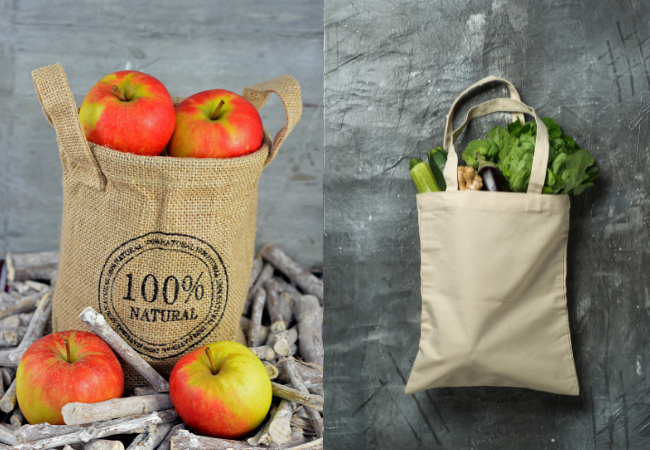In an era where sustainable alternatives are gaining popularity, jute bags and cotton bags have emerged as eco-friendly options for replacing single-use plastic bags. Both materials possess unique qualities, making them excellent choices for environmentally conscious individuals. This article aims to compare jute bags and cotton bags, shedding light on their benefits and helping you make an informed decision.
Jute bags: a natural wonder

Jute bags, crafted from the fibre of the jute plant, offer numerous advantages. Jute is a fast-growing plant that requires minimal water and no pesticides, making it a sustainable and renewable resource. Jute bags are durable, with high tensile strength, ensuring they can carry heavy loads without tearing. Furthermore, jute bags have excellent breathability, allowing air circulation and reducing the risk of mould and mildew.
Jute bags are also biodegradable, decomposing easily without causing harm to the environment. Their natural composition makes them an ideal choice for reducing plastic waste and pollution. Additionally, jute is a carbon dioxide-absorbing plant, contributing to the reduction of greenhouse gas emissions.
However, jute bags have a few limitations. They may lose their shape over time and require careful handling to avoid damage. Their natural colour and texture may also limit design options for those seeking more variety in their bag choices.
Cotton Bags: timeless and versatile

Cotton bags, woven from natural cotton fibres, also offer several advantages. Cotton is a widely cultivated and biodegradable material that is easily available. Cotton bags are soft, flexible, and lightweight, making them comfortable to carry and easy to fold for storage. They come in a wide array of colours and patterns, allowing for greater customization and style options.
Cotton bags are highly durable and can withstand regular use, making them ideal for daily errands or shopping. They can be washed and reused multiple times without losing their shape or strength. Additionally, cotton is a breathable material, preventing moisture build-up and ensuring the contents of the bag remain fresh.
While cotton bags are biodegradable, the cultivation of cotton requires significant water resources and can involve the use of pesticides and fertilizsers, which may have environmental impacts. However, organic cotton options are available, which mitigate some of these concerns.
Making the choice:
Choosing between jute bags and cotton bags ultimately depends on your preferences and specific needs. If you prioritise sustainability, jute bags are an excellent choice due to their renewable nature and carbon-absorbing properties. They are particularly suitable for carrying heavier items and reducing plastic waste.
On the other hand, if versatility and aesthetics are crucial factors for you, cotton bags provide a wider range of design options and colour variations. They are lightweight, easily foldable and great for everyday use.
To conclude, both jute bags and cotton bags offer sustainable alternatives to single-use plastic bags. Jute bags excel in their renewable nature, carbon absorption, and biodegradability, while cotton bags.


